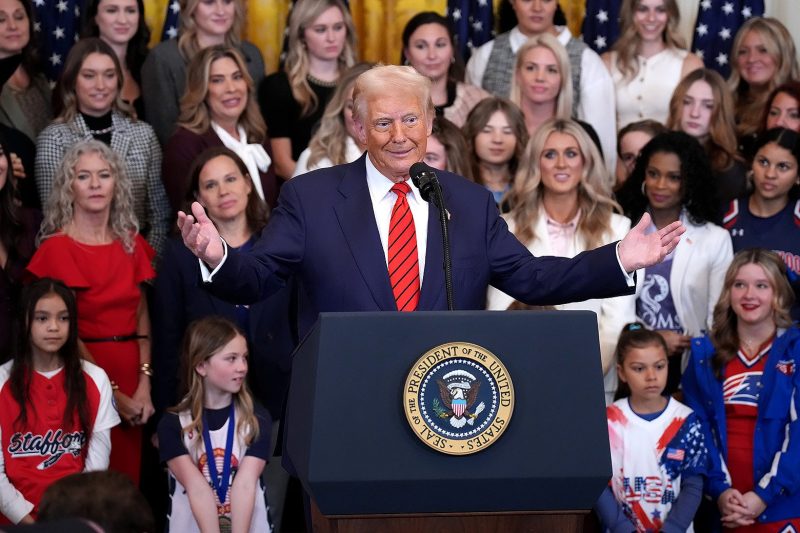
Donald Trump’s presidency began with a bold, if controversial, stance on women’s sports. He signed an executive order barring transgender women from competing on female teams, a move lauded by some as protecting women’s athletic integrity. However, a closer look reveals a stark contradiction: while claiming to ‘SAVE Women’s Sports,’ his administration’s actions have resulted in a significant financial setback for female athletes.
The recent $2.8 billion settlement in the *House v. NCAA* case offered a potential game-changer. This settlement, designed to compensate college athletes for lost name, image, and likeness (NIL) earnings, could have provided a massive boost to women’s athletics. With over 200,000 women competing in NCAA sports, a fair distribution of funds could have been transformative.
However, the Trump administration’s intervention effectively thwarted this possibility. By rescinding the Biden administration’s guidance on equitable distribution of settlement funds under Title IX, the Trump administration removed any federal pressure to fairly compensate female athletes. This effectively left the decision in the hands of individual universities, many of which prioritized football and men’s basketball, leaving women’s sports with mere scraps.
The reality is now stark: the majority of the settlement money – approximately 90% – is flowing to male athletes, primarily in football and men’s basketball. This disparity has led to lawsuits alleging Title IX violations, highlighting the systemic inequities within college sports. Even more concerning is the projected distribution of future funds, with many universities allocating a minuscule percentage—as low as 5%—to women’s sports, a far cry from the equitable distribution advocated by the Biden administration.
While it’s understandable that football, the financial engine of college sports, receives a significant portion of the funding, the Trump administration’s actions effectively ensured that women’s sports were denied a crucial opportunity for growth and financial stability. This situation underscores a troubling pattern: the focus on excluding transgender women from sports overshadows the broader issues of fair compensation and equitable treatment for female athletes.
The narrative of Trump as a champion of women’s sports is demonstrably false. His actions demonstrate a selective concern, prioritizing a narrow political agenda over the well-being and financial security of female athletes. The significant financial windfall that could have been a boon to women’s sports was effectively squandered, revealing a hypocrisy that extends beyond the narrow focus on transgender participation.










